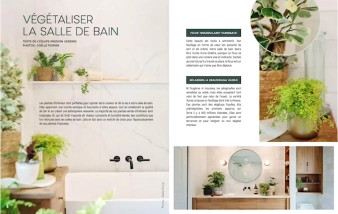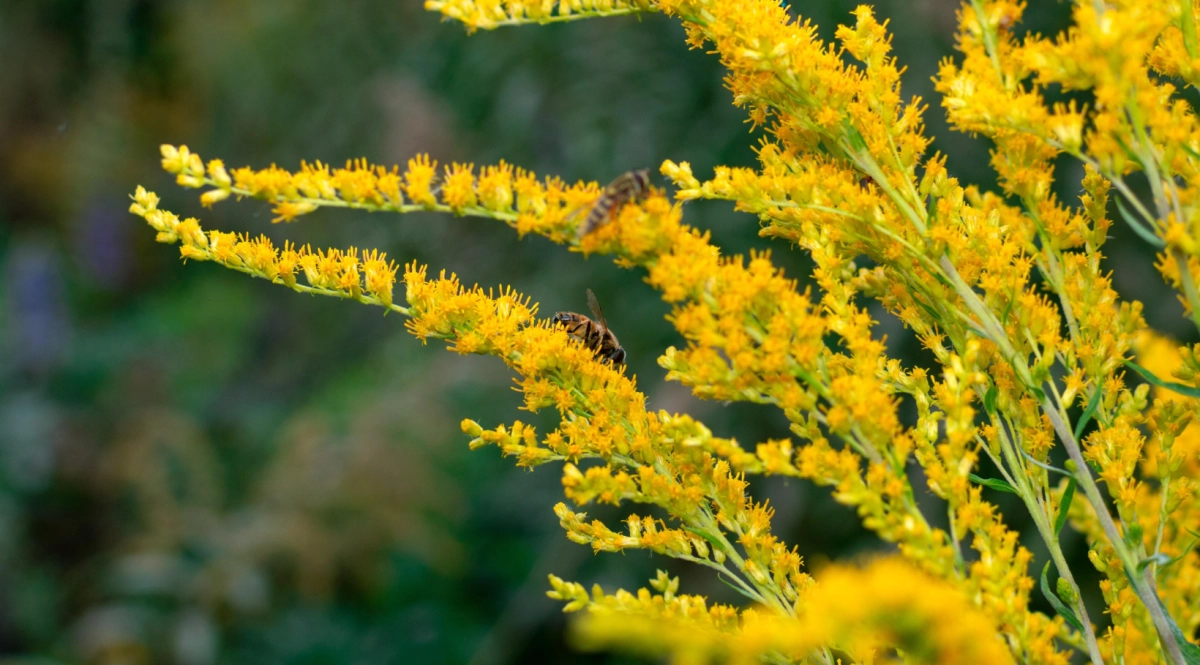
Text from the Passion Jardins Team
__
What if your garden could do more? By incorporating a few native plants from Quebec, you can transform your landscape into a small refuge for local biodiversity. Without changing everything, you contribute to a richer ecosystem... while gaining simplicity in maintenance.
Native plants are beautiful, useful, resilient, and perfectly adapted to our conditions. Yet, they are still underused in landscaping. It's time to give them the place they deserve.
Why adopt native plants?
Quebec's native plants have been growing naturally in our environments for thousands of years. They have evolved with our climate, our soils, and the local fauna. The result? They are particularly well adapted to their environment — unlike many ornamental plants from elsewhere.
But their value doesn't stop there. They have everything to please:
- They support biodiversity: a source of food and shelter for many insects, birds, and small animals. For example, some native plants serve as hosts for butterfly caterpillars, while others provide pollen, nectar, or seeds to local species throughout the season.
- They are resilient: accustomed to Quebec conditions, they withstand harsh winters, summer droughts, and temperature fluctuations well.
- They contribute to soil health: many native species naturally enrich the soil, stabilize banks, or prevent erosion thanks to their deep root system.
- They require little maintenance: once well established, they require little watering, less fertilizer, and are naturally resistant to local diseases and pests.
In other words, they simplify your life while being beneficial for the environment.
Which native plants to choose for your landscaping?
Want to get started? Here are some native plants easy to integrate into your garden:
Milkweed (Asclepias syriaca): essential for the survival of the monarch butterfly, which lays its eggs there. The monarch caterpillar feeds exclusively on milkweed leaves; it is the only host plant for this species. It also attracts bees thanks to its abundant nectar.
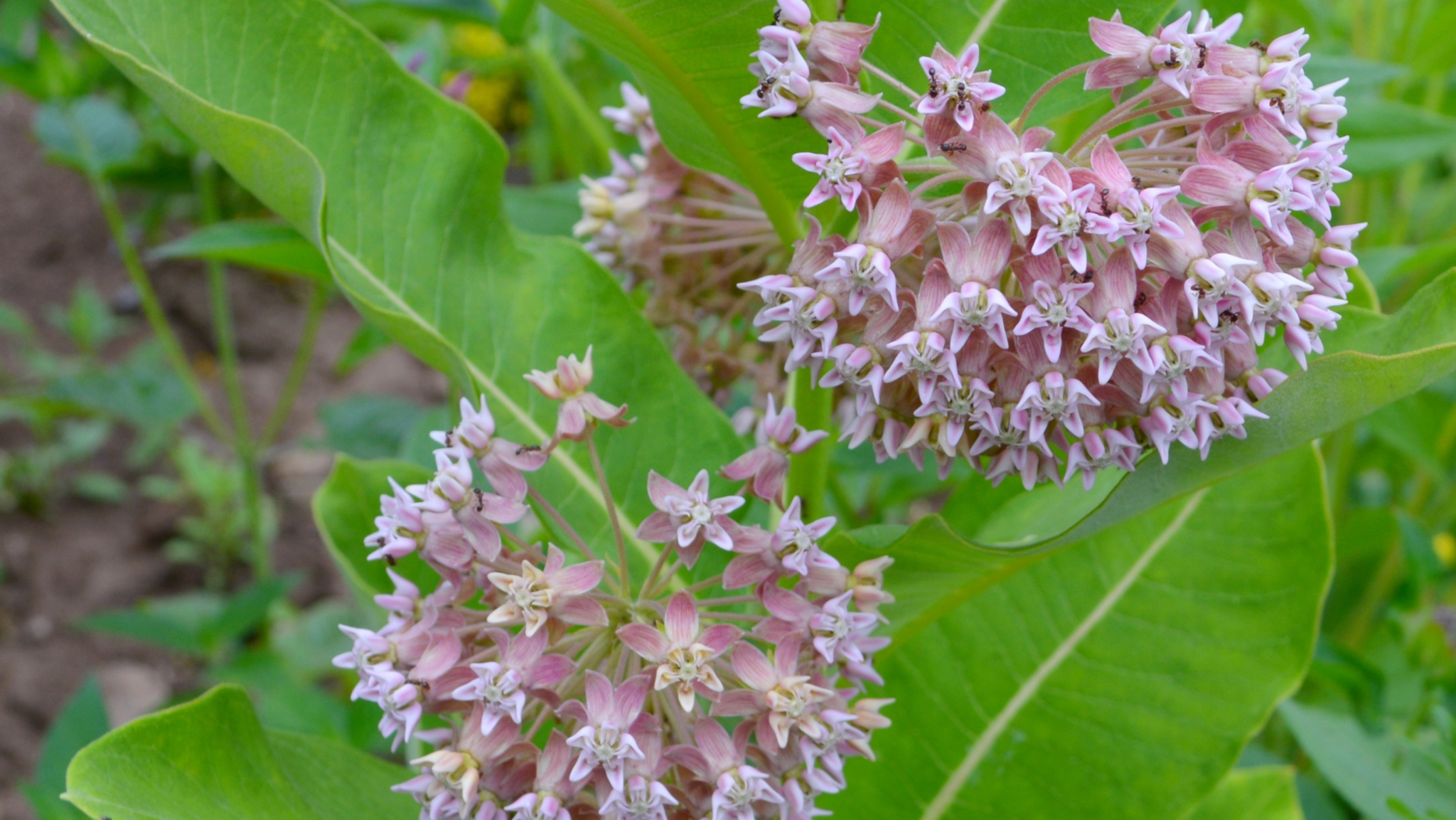
Wild Bergamot (Monarda fistulosa) : its colorful flowers are highly prized by hummingbirds and pollinators in general.
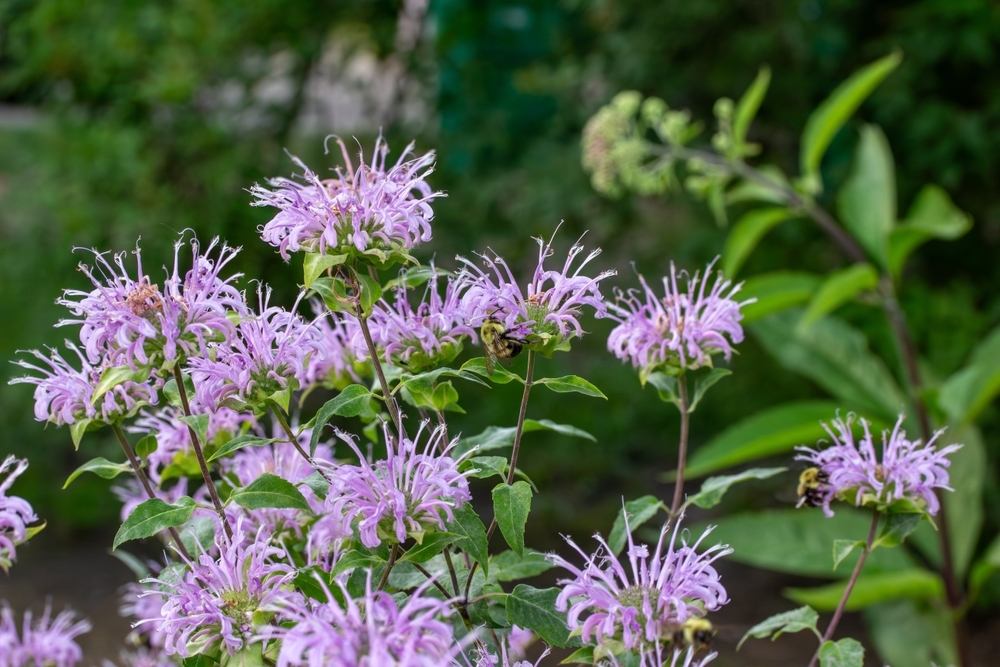
Goldenrod (Solidago canadensis): often misunderstood, this plant is an important nectar source at the end of the season when few other species are in bloom.
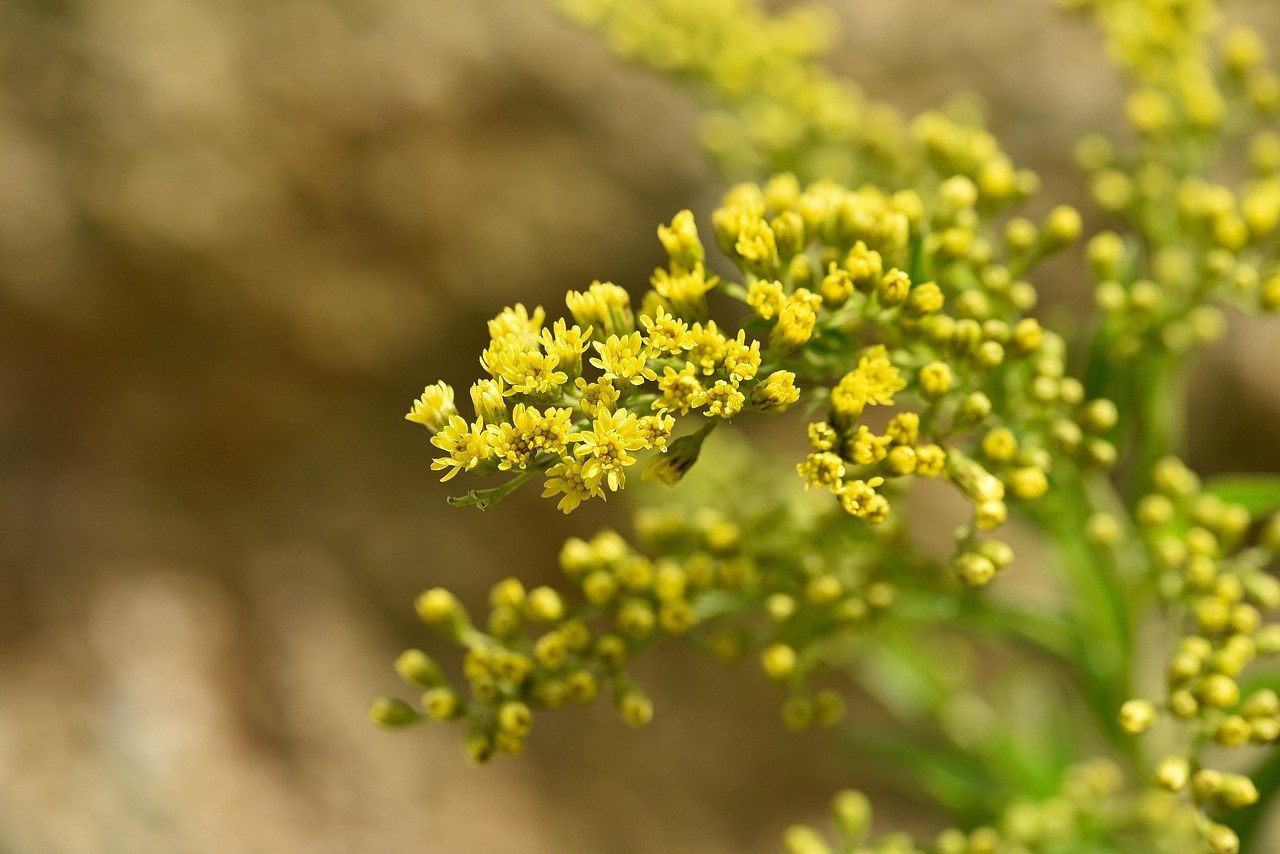
Canadian Elderberry (Sambucus canadensis) : its white flowers attract many insects, and its small black fruits feed several bird species.
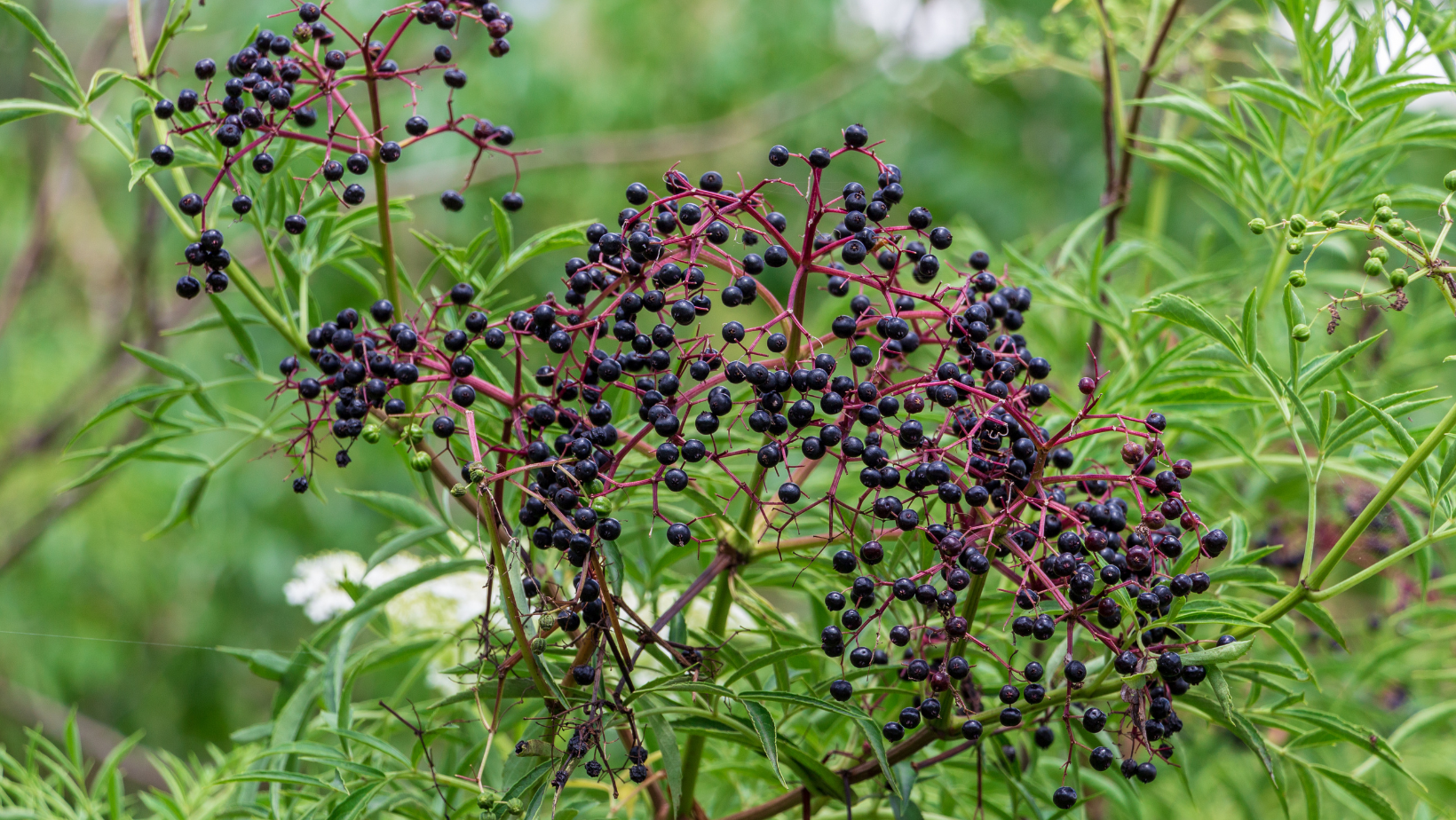
Yarrow (Achillea millefolium) : a drought-resistant and honey-producing perennial, which attracts a wide variety of pollinators.
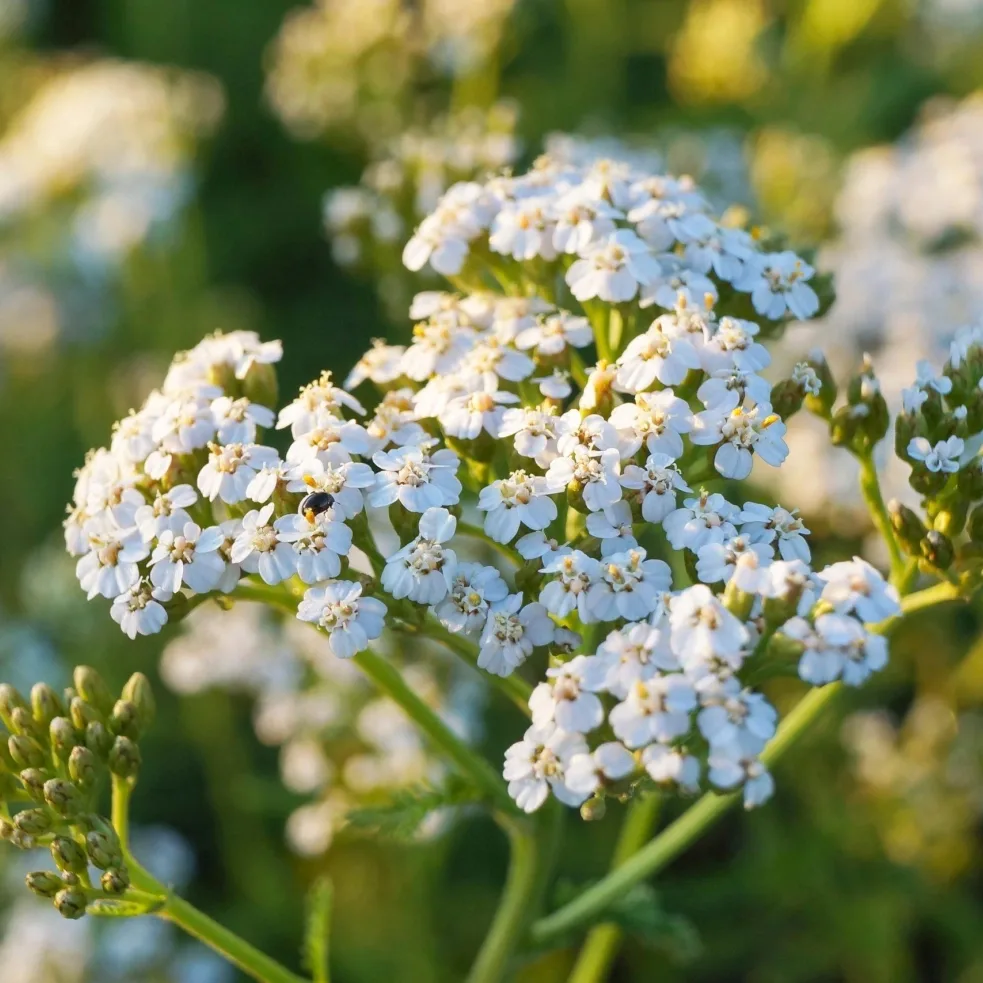
New England Aster (Symphyotrichum novae-angliae) : with its star-shaped purple or blue flowers, it lights up the garden until autumn and offers a valuable nectar source for late insects.
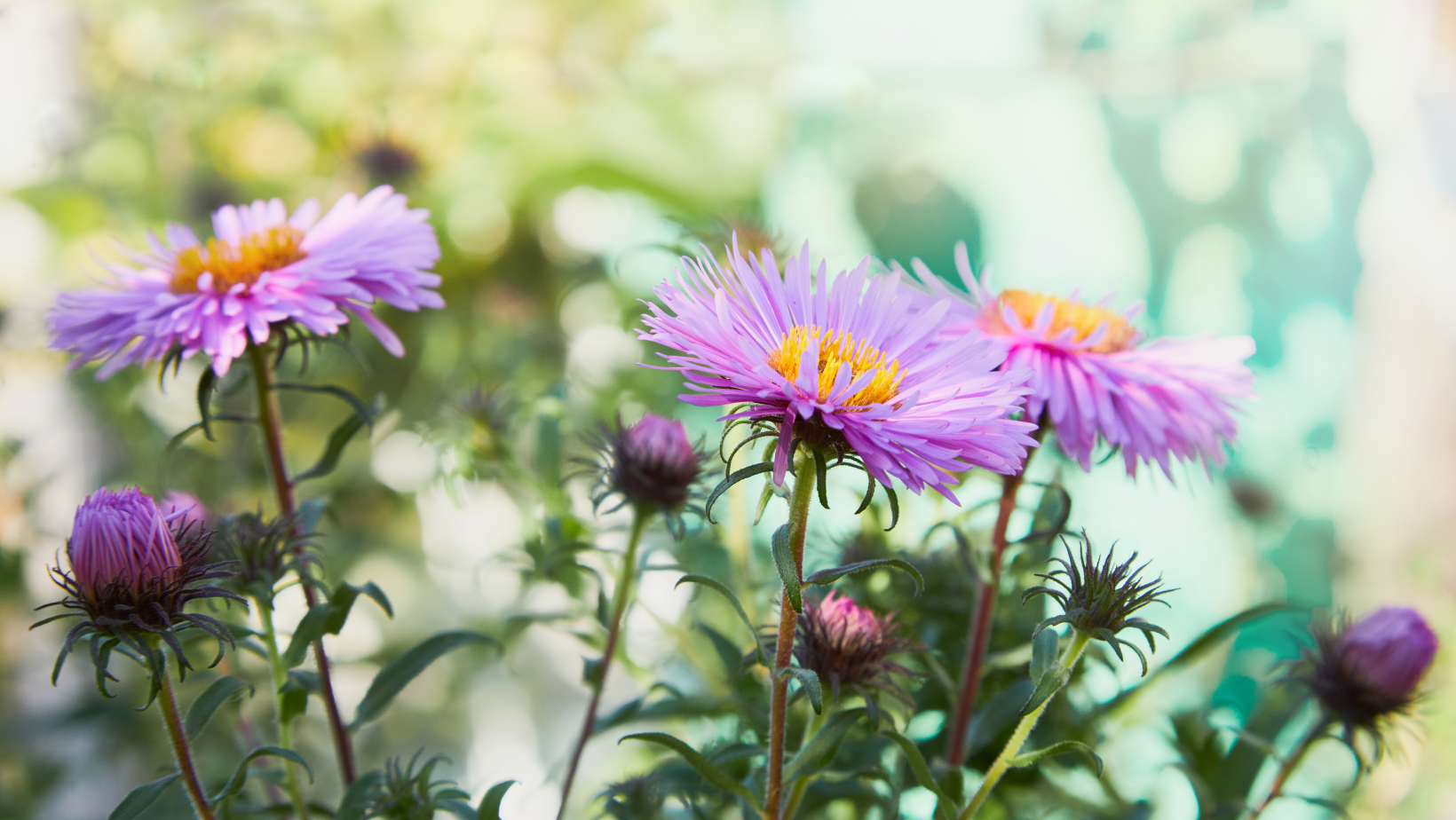
Pearly Everlasting (Anaphalis margaritacea) : a small perennial with silvery foliage and fluffy flowers, ideal as ground cover. It supports several butterfly species and tolerates poor and dry soils very well.
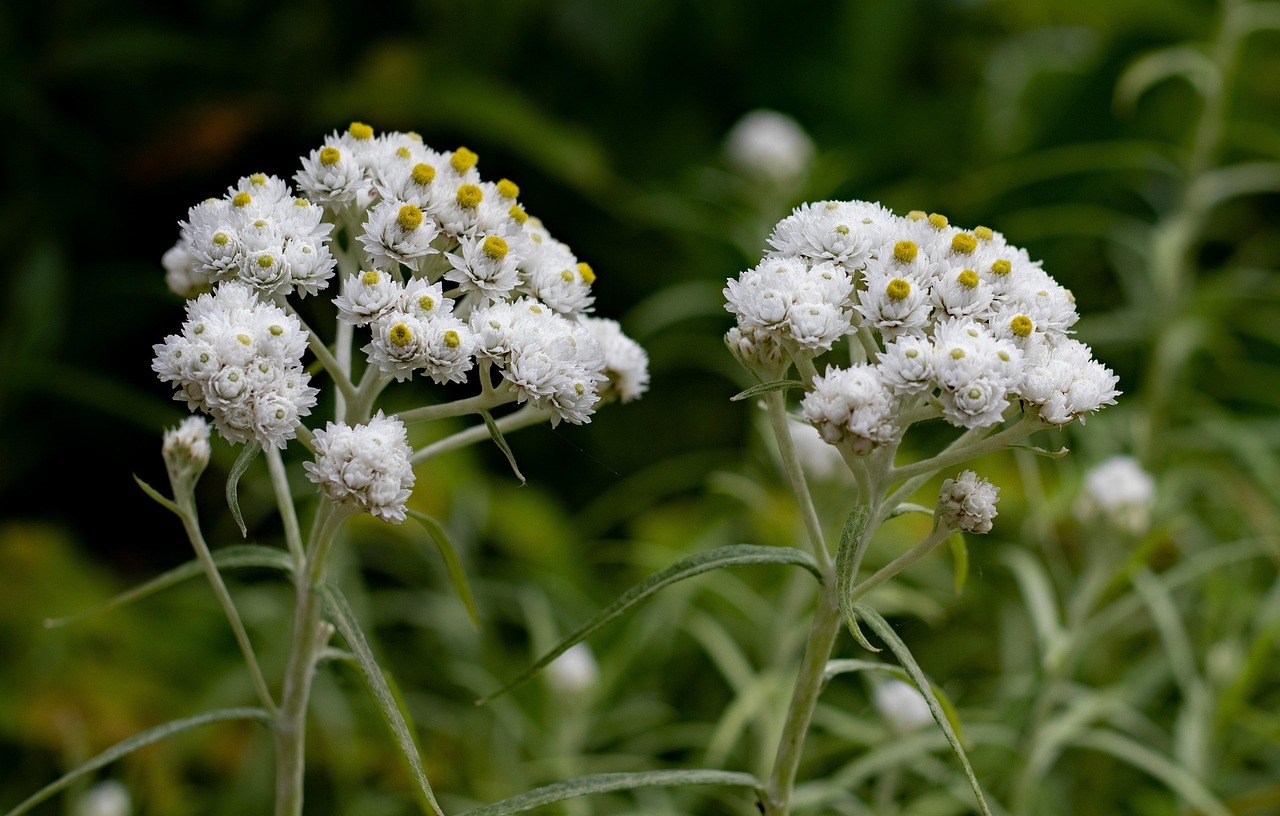
A natural, structured, and elegant garden
Adopting native plants doesn't mean leaving your yard wild. Quite the opposite. These plants can harmoniously integrate into a thoughtful and aesthetic design.
Here are some tips for successful design:
- Combine different heights, textures, and colors to create interesting contrasts.
- Choose species with staggered blooms to maintain visual interest and the presence of pollinators from spring to fall.
- Integrate modern architectural elements (paths, rock gardens, water features) to structure the whole.
- Feel free to mix native plants with ornamental perennials, as long as they don't harm local wildlife.
Letting nature reclaim its place
Integrating native plants into your garden means gardening differently, with awareness and simplicity. No need to revolutionize your yard: a few well-chosen varieties can make all the difference.
Need advice on integrating native plants into your landscaping? Visit Passion Jardins! Our experts are here to guide you in this beautiful local adventure.
Tips and advice
